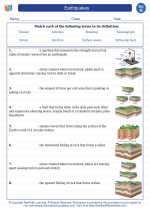Earthquakes -> tectonic uplift
Tectonic Uplift
Explanation
Tectonic uplift refers to the geologic process of raising the Earth's crust, leading to the elevation of landforms. This process is typically associated with tectonic plate movements, including both the collision and separation of plates. When tectonic plates converge, the intense pressure and force can lead to the uplift of mountain ranges and the formation of fold mountains. Conversely, when plates diverge, the stretching and thinning of the crust can result in the uplift of volcanic mountain ranges and the creation of rift valleys.
Causes
The primary causes of tectonic uplift include:
- Convergent Boundaries: Uplift occurs as a result of compression and crustal thickening when tectonic plates collide.
- Divergent Boundaries: Uplift can occur due to the stretching and thinning of the crust as tectonic plates move apart.
- Hot Spots: Uplift may be triggered by the upwelling of hot mantle plumes beneath the Earth's crust, leading to volcanic activity and the formation of uplifted landforms.
Effects
Tectonic uplift has a range of significant effects on the Earth's surface and environment, including:
- Formation of Mountain Ranges: Uplift contributes to the creation of mountain ranges and their associated landforms, such as valleys, ridges, and peaks.
- Climate and Erosion: Uplifted areas can impact regional climate patterns and contribute to the erosion of landforms, particularly as rivers and glaciers carve through uplifted terrain.
- Biodiversity: Uplifted regions often feature diverse ecosystems, with distinct flora and fauna adapted to varying elevations and environmental conditions.
Study Guide
To better understand tectonic uplift, consider the following study guide:
- Research the different types of tectonic plate boundaries and their associated tectonic uplift processes.
- Examine case studies of notable mountain ranges and uplifted landforms around the world, including the Himalayas, the Andes, and the East African Rift.
- Investigate the geological and environmental impacts of tectonic uplift, such as the formation of river valleys, the creation of diverse habitats, and the potential for seismic activity.
- Explore the role of tectonic uplift in shaping landscapes and influencing human activities, such as agriculture, urban development, and resource extraction.
◂Science Worksheets and Study Guides Eighth Grade. Earthquakes
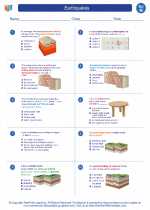
 Worksheet/Answer key
Worksheet/Answer key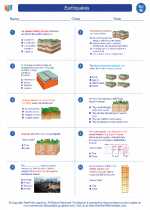
 Worksheet/Answer key
Worksheet/Answer key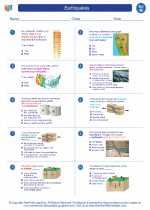
 Vocabulary/Answer key
Vocabulary/Answer key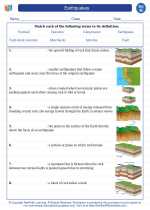
 Vocabulary/Answer key
Vocabulary/Answer key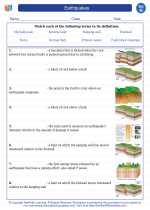
 Vocabulary/Answer key
Vocabulary/Answer key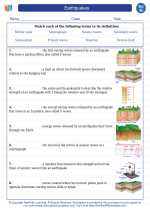
 Vocabulary/Answer key
Vocabulary/Answer key